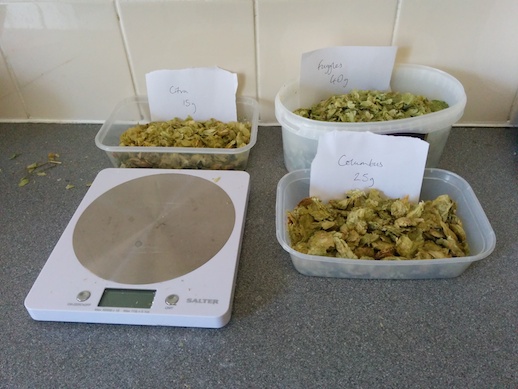By Ben McCormick
One: Birth of the booze
This year, I became a parent again. After months in the gestation and countless pounds spent in preparation, a new child entered the household in March this year. When I left the marital, family home a few years ago, I never imagined this would happen; not at my time of life. But once again I’m captivated, spellbound and unable to think of anything else but a small package that can’t speak and gurgles every now and then just to let me know it’s alive.
In truth, a flurry of activity towards the end of May last year should have tipped me off something might yet be afoot nine months hence. And so it proved. Preparations began in earnest in December and ramped up through January and February. The more stuff you buy, the more things you realise you haven’t got and you increasingly wonder whether you’ll ever be ready. At least this time I knew there was room in the flat for all this extra gubbins to accommodate the new arrival.
The old cliché about nothing being able to really prepare you held true when the big day came. And it always seems to be an early start, just to add to the confusion. Throw in the variables of a small, linear flat, cramped kitchen, too many people fussing around and some mild panic and you’ve all the ingredients for the kind of chaos you wouldn’t want to introduce a new life into.
And yet. Despite the hullaballoo, the hysteria, the heated conversations and the hideous smell, a new life is dragged into the world. Frothing, foaming and fermenting away under the stairs.
It’s a living thing, beer. And I brought my first one into the world in March around nine months after I wrote a magazine about homebrewing for a well-known Bath-based publishing house. I named it Imperial Porter in honour of the recipe from the Kernel brewery on which it was based. At least 10 are still alive today, maturing in the dark, dry surrounds of the under-stairs cupboard alongside the equipment that gave them life. I don’t mean to be flippant about childbirth and upbringing, but several times over the last few months, I’ve returned to the flat hugely concerned for my beer’s welfare. I’ve checked its temperature, tested its ‘blood sugar’ levels and even given one batch the kiss of life when it seemed fermentation had flat-lined.
So far, I’ve sired five different broods: a strong porter, two hefty IPAs, a pale ale that lasted all of three hours at Port Eliot and a saison (a Belgian-style farmhouse ale) that I, understandably partisan, believe ranks among the best I’ve tasted. As a result, I’m hooked. I’m not entirely sure what’s coming next, but there’s enough malt, hops, yeast and equipment in the flat to knock up another 20-odd litres of any number of different styles of beer at a moment’s notice.
Now I’d forgive anyone for thinking the likely consequences of a self-confessed ‘enthusiastic’ beer drinker having upwards of 40 pints of the stuff cluttering up his flat at any one time is a catastrophe waiting to happen. But the weird thing is, this new-found craving for creation has had two remarkable effects: I barely venture to the pub any more (OK, not nearly as much as I used to) and I’ve given away a frightening amount of beer to other people instead of consuming it myself.
The first is easy to understand – pubs are expensive and I can make beer that’s at least as good if not better than what’s generally available in them. And if I do go to the pub, I’ll drink much less there, because it’s increasingly difficult to justify paying more than £4 for a pint of something you could brew better for less than 10 per cent of the price. You can take the boy out of the north, etc.
Giving beer away is slightly more complex. I’ve begun to see this as a necessary part of the homebrew’s development. As well as going through the actual brewing, racking and maturing process, it needs the approval of others. Gone are the days you’d hide your Boot’s kit-brewed stuff at the back of an airing cupboard in the hope no one noticed because it tasted so disgusting. There’s now a real sense of needing to share with people. And not just for personal pride either; rather it’s a rite of passage for any homebrewed beer to be introduced to the wider world for comment and, hopefully, approval. As an expert in the art once put it: beer wants to be brewed, yeast wants to eat sugar and turn it into alcohol. And in turn, we want to inflict the results on our friends and acquaintances.
I genuinely look forward to foisting more of my own produce on to others in future.


